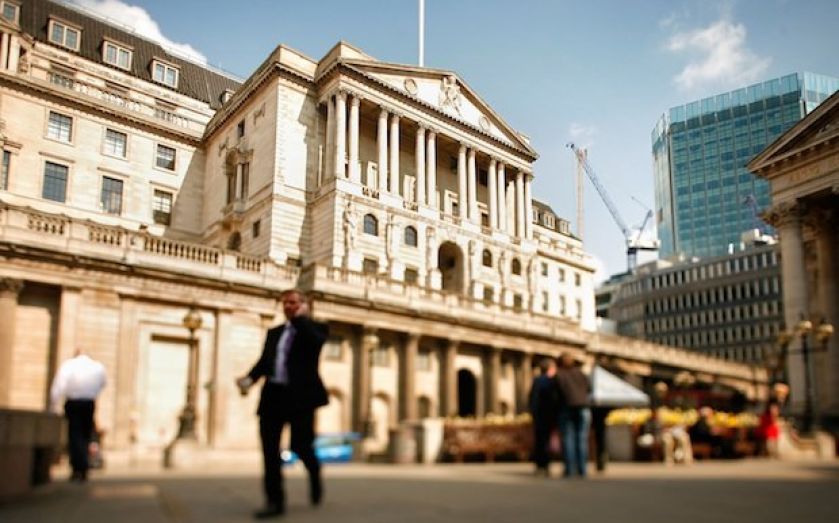Why it’s time to stop feeding our addiction to ultra loose monetary policy

WITH GDP still 2 per cent below its pre-crisis peak and consumer price index inflation falling back to its 2 per cent target, many argue that Britain should stick with extraordinarily loose monetary policy for longer. Just yesterday, the EY Item club urged the Bank of England to bolster its forward guidance policy, and to keep interest rates at 0.5 per cent even if unemployment falls beneath the 7 per cent threshold in 2014. We must stop hurtling down the tempting path of easy money, however. Continuing in the name of caution now risks calamities ahead.
There are three key reasons why Mark Carney should explicitly rule out reducing the 7 per cent threshold at next month’s Inflation Report press conference, and move to a path of gradual monetary tightening. First, is the impact that ultra-loose monetary policy has had on productivity. 2013 may have been a year of encouraging growth, but consumption has risen faster than income and productivity has continued its six-year stagnation. In the third quarter of 2013, UK labour productivity declined again.
One of the reasons for this lack of productivity growth is the survival of large numbers of zombie companies. Rock bottom interest rates have prevented the natural process of unproductive companies leaving the market to be replaced by new, dynamic startups. Without allowing markets to function as they normally would, there seems little likelihood of productivity returning to strong growth. Without improvements to productivity, there can be no long-term rises in real wages and underlying economic growth, and ultimately we cannot really begin to raise living standards. This is an important point, reinforced in a recent paper by Oxford academics Jennifer Castle and David Hendry.
Second is the pernicious impact that extraordinary monetary stimulus appears to be having on financial markets. In our post-crash exuberance, we seem to have forgotten the lessons of the crisis. Overly expansionary monetary policy in the early 2000s fuelled property and housing booms and subsequent busts. The single most important issue in bond markets over 2013 was the timing of the Fed taper, and it easy to see why when we realise the extent to which governments now effectively own their own debt. Not only does this encourage continued fiscal deficits, but the excess liquidity risks harmful distortions and bubbles in asset markets.
More generally, do we really think it’s a good idea to be subsidising the highly-indebted at the expense of those who save? As McKinsey’s recent study on the distributional impact of QE shows, borrowers have benefited greatly from massive central bank asset purchases. The study also estimates, however, that UK households experienced a cumulative net loss of £70bn from QE. This raises a serious question about the behavioural impact of easy money, as borrowing becomes habitual and saving becomes unusual.
We can all agree that expansionary monetary policy was necessary in the aftermath of the crisis. It helped to stop faster declines in GDP and employment in an emergency. By continuing with this sort of policy indefinitely, however, we risk making our recovery weaker and storing up more problems in the future.
Adam Memon is head of economic research at the Centre for Policy Studies.